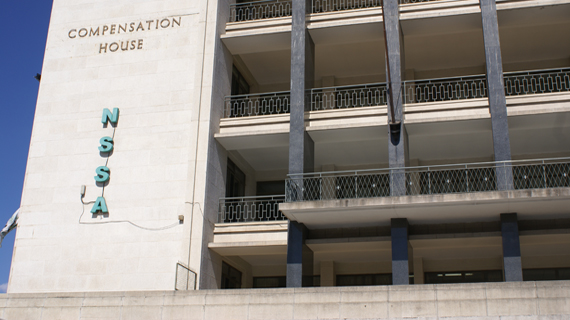
THE National Social Security Authority (NSSA) is heavily exposed to several banks that are struggling to repay loans, and has sold off properties of one financial institution to recover a $25 million debt, Parliament heard on Monday.
NSSA managing director James Matiza told a Parliamentary portfolio committee on Public Service Labour and Social Welfare that the authority sold Metropolitan Bank’s head office and other properties for $27 million to recover a $25 million loan.
“We gave Metropolitan Bank a securitised loan of $25 million and they failed to repay. We then said we are disposing (of) the security we held and they agreed.
“We took their buildings and they were assessed by an independent valuator.
“The buildings we were holding onto were worth $27 million, so we have recovered our funds and we will pay back the extra $2 million,” said Matiza, without giving dates.
He also said the state-run pension fund was also holding on to title deeds to head offices of several banking institutions as security for funds borrowed.
“We recover our funds, if the economy was functioning well no bank would give its head office to a lender as security. Because banks are undercapitalised, they agreed. We are holding on to head offices of many banks and we have the title deeds. If they fail to repay we will sell the properties and recover our funds,” he said.
Matiza said NSSA, which holds a 24% shareholding in starafricacorporation, extended a $5,3 million loan to the company to acquire a new sugar refinery plant on condition of board and management changes.
- Chamisa under fire over US$120K donation
- Mavhunga puts DeMbare into Chibuku quarterfinals
- Pension funds bet on Cabora Bassa oilfields
- Councils defy govt fire tender directive
Keep Reading
He said starafricacorporation is currently installing the new equipment, adding that the country’s largest brewer Delta, had made orders for sugar after initially suspending trade with the refinery over quality issues.
NSSA, which has 70% of its investments in the equities market, has interests in 64 of the 69 companies listed on the Zimbabwe Stock Exchange, holding at least 10% shareholding in 12 counters, Matiza said.
At another hearing, the parliamentary portfolio committee on public accounts questioned why NSSA was allowing its managers who sit on boards of various companies to pocket allowances of over $100 000 annually instead of remitting the money to their employer.
NSSA managers who are sit on boards of companies where the authority has shareholding and those who do not, were each earning $111 000 in directors fees per year, Matiza told the committee.
“Is it proper for individuals to pocket the fees instead of submitting them to NSSA?” asked Willias Madzimure, MDC-T legislator for Kambuzuma who is acting chairperson of the committee.
Matiza said the payment of directors who were already on NSSA’s payroll was for the “extra effort” they exerted.
The managers were paid various amounts by different companies, which they shared equally, he said. The fees was increased by 50% in 2012 to $111 000. MP for Chikomba East, Edgar Mbwembwe (Zanu PF) said the responses given by Matiza were “inconsistent and contradictory” after earlier claiming that the directors at NSSA were lowly paid.
“Now you are bringing in the argument that they are putting in extra effort. I don’t know of any companies that have such practices,” he said, citing an example of the Industrial Development Corporation managers who submitted their fees to the corporation.
The acting secretary in the ministry, Sydney Mhishi said there was need to revise the law that governed parastatals in line with good corporate governance.
– The Source










